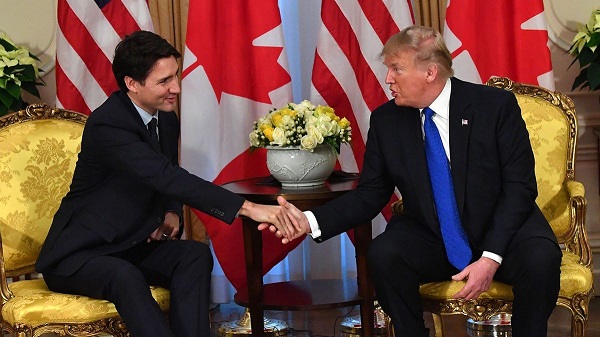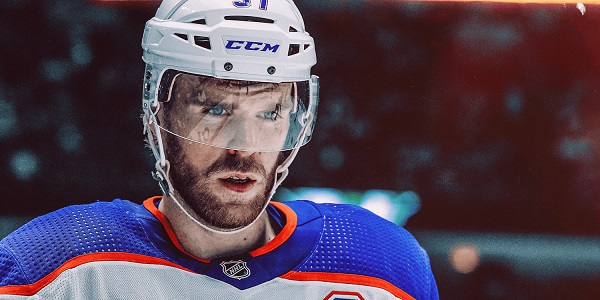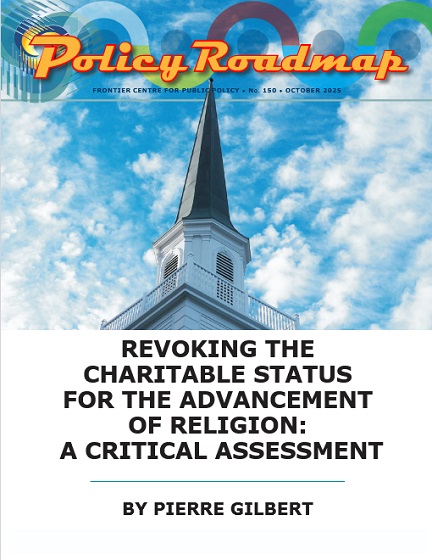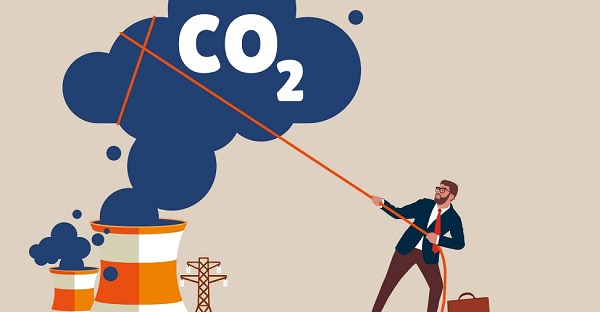Bruce Dowbiggin
Why Best Friends Are Fighting: Tariffs Are Just Trump’s First Salvo

Trump is holding a mirror to a postmodern Canadian state that still thinks it’s Bob & Doug McKenzie and polite folk opening the door. Maybe it was at one time, but since Justin Trudeau spread his chocolatey goodness on the nation it’s now a world centre for money laundering that won’t pay its defence obligations.
The hysteria was mint this past weekend from panicky Canadians acting as if Donald Trump’s tariffs were a Pearl Harbor sneak-attack. They booed the Star Spangled Banner at sporting events, had conniption fits of self pity (‘we’ve been friends for so long!”) and generally acted like fainting goats by forgoing U.S. sun holidays.
Whatever the merits of Trump’s beefs the indignant reaction revealed a very unsettled nation. Punishing America by pulling wines you’ve already paid for off the shelves is baffling. Cancelling a Star Link contract with Elon Musk is just a self goal. (A chastened Musk replied, “Oh well!”) Alberta premier Danielle Smith, who’d used negotiating to get a cutout for Canadian oil, being roundly called a vendu by the righteous Eastern horde was precious.
Charter members of the crumbling legacy media outdid themselves in promoting Trudeau’s fanciful Team Canada theme. “This is a mind poisoned with grievance and resentment,” raged CBC panelist Andrew Coyne. “So coked up on his own bile that even in a moment of maximum national peril his first thought is how to use it to settle scores with the rest of the country.”
Well then. It was all rather unseemly. Noted Dilbert creator Scott Adams, “Canada’s response to Trump’s tariffs is to be publicly sad about it.” But are Trump’s concerns genuine? Is he picking unfairly on a longtime pal? The fact is that Trump is holding a mirror to a postmodern Canadian state that still thinks it’s Bob & Doug McKenzie and polite folk opening the door. Maybe it was at one time, but since Justin Trudeau spread his chocolatey goodness on the nation it’s now a world centre for money laundering that won’t pay its defence obligations.

Example: TD Bank was just fined $3B by US regulators for laundering fentanyl drug money back to Communist China. It’s the largest such fine in U.S. history. A fine TD paid without complaint. Trudeau’s Canada is a credit-bubble real estate play inside a WEF construct wrapped up in an entitled clique that sits in first class but only pays economy. (And don’t get us started on the unsolved Sherman murders.)
Having gotten their news from CBC and Toronto Star, the average CDN does not understand any of this. While the Libs/ NDP swoon over climate and pronouns, Canada has become a place that Trump and other nations simply don’t trust. Security officials fear that anything said to Trudeau’s government will end up getting to China or other bad actors. And many of those same bad actors are domiciled in Canada at the moment. (The RCMP say there are over 4,000 separate groups dealing drugs in Canada.)
Canada’s exclusion from surveillance organizations like AUKUS and the G7 Quint talks is enough to tell you that Trump is not alone in distrusting Canada. Under the previous Obama doctrine, Canada was cool so long as it did DEI, ESG and had kittens over climate. Biden let the Great White North snooze away under Trudeau. The new American administration, however, has a higher bar of expectations.
Ones Trudeaupia has not met. How do you describe America’s sense of astonishment when it asked its “loyal friend” Canada not to import 5,000 undocumented Gazans during this current shooting war, not wanting terrorist sympathizers along its northern border. Then, out of spite, Trudeau’s response was to bring them in, give them healthcare and do photo ops with them?

Trudeau has also lectured Americans for electing Trump and not a woman in 2024. No wonder Trump played them last weekend about their lax border security. One of the “brilliant” ripostes on borders — repeated by all the clever people— was that only one percent of America’s fentanyl comes from Canada. For those who think that’s a mic-drop moment consider: that’s fentanyl seized by America at the border.
Here, Canada’s international crime agency destroys the one-percent argument. Canada is a major manufacturer and distributor of fentanyl. How major? There is a technique used by international drug and money launderers called the Vancouver Model.
As a recent discovery of 8 Kg during a truck stop in Swift Current illustrates, the amounts undiscovered in Canada and the U.S. that originate from shipments to Montreal or Vancouver are way more than the CDN media parroted over the weekend. For those booing the Star Spangled Banner, note that 8 kg. is enough for four million deadly doses of fentanyl. (B.C. NDP premier David Eby had to confess he can’t even begin to inspect all the drugs flowing through Vancouver).

This story of a Punjabi driver arrested in Manitoba with $50M in meth in his truck gives you the flavour. Last month, Toronto police seized 835kg from a truck and stash houses across the city. And, say experts, there are more terror suspects coming from Canada to America than from Mexico. Now tell us why the unchecked importation, distribution and profits from the drugs are not significant in a trade deal.
Speaking of truckers, Canada’s explosion in newly arrived cross-border truck drivers is another huge issue for Americans. As Toronto business writer Stephen Punwasi @stephenpunwasi explains a good portion of the “students” coming into the nation are getting a very different education on life in Canada. “Canada had no checks or balances for its study program. No background checks or school verification. Just show up at the airport w/ proof of funds, and a letter they won’t verify. That’s it. ” These “graduates” quickly end up in a rig running contraband drugs, guns and tech to supplement their minuscule earnings.
“Between 2017 & 2024, Ontario went from 80 truck driving schools to 280. The province has 6 auditors for 600 private career colleges—almost half for trucks, apparently. No enforcement standards.
“To recap,” continues Punwasi:
-
“money laundering capital of the world
-
– no school regulations
-
– criminals run certifications
-
– desperate folks from developing countries w/no standard of entry
-
– no scrutiny for x-border traffic”
Canadian trucking executives know the problem in the industry. They say new entrants make no money trucking, but they do make for easy “‘runners’. It is rampant. One executive says his firm has virtually exited the cross-border business, because of the changing demographics. These truckers— many of them speaking no English— are housed in suburban neighbourhoods in Brampton or Mississauga or Surrey, stacked by the dozens in barracks homes in between their sorties to the U.S. and the ROC. Attempts to restore local zoning laws are fought by the ringleaders.

But hey, says CBC, Trump exaggerates the problem. He’s also contemptuous of the current attempt to slide climate alarmist Mark Carney into Trudeau’s seat. The dread of being lectured by a CBC-approved suit like Carney is only leavened by the prospect that he can deal with Pierre Poilievre when— if— the Liberals ever let Canadians voice their will. This is what Canada’s Left call progress. Save the tundra and the Arctic swallow but crater the economy.
A final feature of the pearl clutching this past weekend was the idea that Trump would somehow invade or otherwise claim Canada as a 51st state. Canadians seem to feel that Trump’s job is to pacify their feelings, not act on behalf of those Americans who decisively elected him and his mandate. Like victims of a high school break-up Canadian progressives are now tearing up all the letters and sending back the jewelry from their tryst. Memo to Canada: Being U.S. president is not joining a book club. As such you don’t elect a trust-fund poseur.
Whatever Trump’s jest, the last thing he wants is the culture nightmare of Quebec, the vast land claims of the native tribes, the welfare status of the Maritimes and the unbearable smugness of the Flora MacDonald Marching Band in Ontario. If Canada or Canadians are to join America it will be because they’ve asked in, not be captured. Trump would dictate the terms, and he doesn’t want a dozen new Mississippis, especially ones with poutine.
For now, the 30-day pause in tariffs allows time to drop the theatrics and get on with the reality of an economy that will consume Canada’s economy at the present rate. By week’s end even Trump’s vitriolic critics like the Globe&Mail were offering backhanded acknowledgements that, however crude they found the president’s tactics, he did wake up Canadians to the issue of Canada’s lassitude on defence and the border. Doomberg summed up the conflict. “The economic wisdom of applying tariffs is worthy of debate, but the threat of tariffs has proved the perfect instrument for the task. Having weighed 250 daily American deaths on the scale of trade-offs, Trump’s actions have finally acknowledged reality. Godspeed’.”
Bruce Dowbiggin @dowbboy is the editor of Not The Public Broadcaster A two-time winner of the Gemini Award as Canada’s top television sports broadcaster. His new book Deal With It: The Trades That Stunned The NHL And Changed Hockey is now available on Amazon. Inexact Science: The Six Most Compelling Draft Years In NHL History, his previous book with his son Evan, was voted the seventh-best professional hockey book of all time by bookauthority.org. You can see all his books at brucedowbigginbooks.ca.
Bruce Dowbiggin
Long-Distance Field Goals Have Flipped The Field. Will The NFL Panic?

It is a day that lives in infamy for Buffalo Bills fans. Jan. 27, 1991, with Buffalo against the New York Giants in Super Bowl XXV. Behind 20-19 with eight seconds left, Scott Norwood, a former All-Pro, attempted a 47-yard game-winning field goal. The kick was, in the immortal words of Al Michaels, wide right.
In the days of the Bills’ four consecutive losing trips to the Super Bowl a 47-yard field goal was within the range of an All Pro kicker. Still it was considered anything but automatic. And kicks of over 50 yards were moon shots with a high degree of failure. Sixty yards? Please, don’t make us laugh.

But as anyone watching field goals in the NFL and CFL can attest the distance barrier has been shattered. NFL kickers are making 72.5 percent of field goals from at least 50 yards. Four kicks have been made from at least 60 yards — one shy of the single-season record. Tampa Bay’s Chase McLaughlin hit a 65 yarder against Philadelphia in Week 4, one yard short of Justin Tucker’s record set in 2021.
Last Sunday Evan McPherson of Baltimore hit a 67-yarder that was wiped out by a late timeout called by Green Bay’ HC Matt LaFleur. (Jacksonville Jaguars kicker Cam Little hit a 70-yard field goal, but it was in preseason and not an official record.)
What makes this onslaught more interesting is that the record for longest FG in the NFL had stood 43 years from Tom Dempsey’s game-winning 63-yarder in 1970 against Detroit for New Orleans. (Dempsey, who has no toes on his right foot wore a special kicking boot.) It took Matt Prater and the light air of Denver to establish a 64 yarder on December 8, 2013. Since then it’s been bombs away.
Dallas’ Brandon Aubrey is the current king of effortless distance, regularly pounding them through from over 60. Many expect him to break the 70-yard mark. (Airlines have movies on flights that long.) No wonder then that the NFL has set records in each of the last four seasons for 50-yard field goals. The total of 195 in 2024 was double the total from every NFL season until 2015.
The combination of distance training plus a few new rules has revolutionized game strategy in today’s game. With the so-called Dynamic kickoff rules forcing more returns, teams are regularly starting drives at the 35- or 40-yard line. In late-game situations top quarterbacks like Buffalo’s Josh Allen or Kansas City’s Patrick Mahomes need to get only a couple of first downs to get in the range of their kickers.

Now, a TD with under a minute left is not the death sentence for teams with one of the better kickers— as Bills fans will remember from their crushing loss in the AFC championship game to the Chiefs in 2022. The game featured 25 points scored in the final two minutes of regulation. The Chiefs took just 11 seconds to get to Harrison’s Butker’s range for a tying 47-yard field goal, then won in overtime.
Once the kicker played another position. Today they are specialists. The science of kicking has also improved with a plethora of kicking camps and coaches springing up to train the latest generation of long-distance drivers of the ball. With only 30 jobs in the NFL the competition is fierce, and only the very best get even a look at the pros, let alone s job. But with the money paid to a steady kicker there are thousands each year refining their craft and strengthening their techniques to get a sniff.
Another innovation improving distance was the league allowing teams to prepare their own kicking balls for games. Now they receive a supply of 60 game balls before the season to use in games. 49ers kicker Eddy Pineiro estimates the broken-in balls add maybe three or four yards to the distance on kicks. The rules stipulate that no artificial heating, stretching or inflating are allowed but Jets kicker, veteran Nick Folk, says that it gives him. Comfort zone.
“We get to kind of do just like quarterbacks get whatever they want to do to the ball, as long as it looks like a football and the logo’s still there and all that stuff,” Folk told AP. “I think they’re pretty lenient with that. It’s a very welcoming thing to be able to kind of look at a ball and be like: ‘All right, I want to kick this one this week, I want to kick this one this week.’”
In the CFL the place-kicking game is about to get a big shock as the league moves goal posts from the goal line to the back of the new, smaller end zones. Kickers will now be forced to kick much further for three points, while offences will play on a smaller field that requires more emphasis on TDs.
Paul McCallum stroked a 63-yard to set the league’s record, and like the NFL, CFL kickers are constantly pushing their range in a league with only one indoor surface. Unlike the NFL, the CFL allows PKers to use a tee. Suffice to say the reconfigured field will take getting used to. (Already traditionalists are fuming.) At least we don’t have the rouge on missed FGs to kick around any more.
For now the quest for a 70-yard field goal continues. The question will be how does the NFL react to re-balance the field’s dynamics to protect the integrity of scoring.
Bruce Dowbiggin @dowbboy is the editor of Not The Public Broadcaster A two-time winner of the Gemini Award as Canada’s top television sports broadcaster, his new book Deal With It: The Trades That Stunned The NHL And Changed hockey is now available on Amazon. Inexact Science: The Six Most Compelling Draft Years In NHL History, his previous book with his son Evan, was voted the seventh-best professional hockey book of all time by bookauthority.org . His 2004 book Money Players was voted sixth best on the same list, and is available via brucedowbigginbooks.ca.
Bruce Dowbiggin
Canada’s Humility Gene: Connor Skates But Truckers Get Buried

My friend and colleague Roy MacGregor used to talk about the “humility gene” in Canada’s hockey heroes. From Gordie Howe to Jean Beliveau to Wayne Gretzky it described the aw-shucks attitude of the top players in the game, who are as Canadian as Roy’s famous canoes.
The refusal to go Hollywood like the NFL, NBA or MLB stars was a defining characteristic of the hockey culture that once bound Canadians. For decades this “fear of flying high” was used by the NHL against the stars when it came to getting paid. Even when players belatedly started a union, their executive director Alan Eagleson did everything he could to suppress salaries and please his buddies in the owners’ box.
What Eagleson’s treachery didn’t accomplish the Tallest Wheat syndrome in Canada did . “You’re paid to play a child’s game. When is enough money enough? You should be grateful the owners let you wear their uniform.” For most players the fans’ withering guilt was the worst fear. In short, outsiders are not allowed to rip on Canada’s stars, but Canadians themselves are free to bring low their heroes.
In our obit for Bob Goodenow, Eagleson’s successor at the NHLPA, we described the slow, painful climb to final self determination in the 1990s. “It’s hard to understate the mentality he had to change… Goodenow convinced hockey players that to earn their worth in the market they had to stick together in negotiations.”

This is relevant this week as Canada’s star player Connor McDavid resurrected the humility gene in Edmonton. The greatest player in his generation McDavid held all the cards to negotiate a new contract with the Oilers or whomever he wanted. Everyone outside Edmonton— particularly his hometown Toronto Maple Leafs— wanted a piece of McDavid and was willing to pay a huge price for him.
As a hint at what McDavid might earn, Minnesota’s Kirill Kaprizov, who’s never won a major award or played past the first round of the playoffs, just received $136 million for eight years ($17M per year). The new CBA allows that soon the top players could earn as much as $20 M a year.
But this was humble time in a Canadian city mortified that its coolest kid was leaving. What to do? Being a self-deprecating Canadian and successor to the humility gene McDavid chose to halve the baby, taking a preposterously low $12.5 a year for two years in Edmonton while also making it obvious he’s gone should the Oil again fail to win the franchise’s sixth Stanley Cup.
It was the most Canadian solution to wanting to be a good guy for a city that, trying to being kind, isn’t Palm Beach or Brentwood. While hinting he will cash in later.
For certain the low-ball conclusion to what was to be a season of painful interviews about his future did nothing to endear McDavid to his fellow NHLPA members. Notwithstanding Kaprizov’s haul, McDavid’s cratering will put a chill on salaries for stars while putting a big smile on the face of NHL commissioner Gary Bettman. He has players back in the barn, and he has Canada to thank for it.
We saw that same Canadian herd instinct in the election when the Liberals marshalled ex-pat Mike Myers to reinforce the suppressing instinct. Exposed by Trump for their handling of their economy the past 10 years the Laurentian elite recoiled in horror, preferring the sunny fairways of self delusion over the reality of a dysfunctional nation.
The best bookend to McDavid’s humility is the concurrent legal resolution to the Truckers Convoy of 2022, a non-violent event (okay, someone pissed on the Cenotaph) that convulsed the nation for three weeks. If a Covid mask obscured your view of the circus let’s just say it was a sit-in by truckers upset with the arbitrary virus/ vaccine actions inflicted by Justin Trudeau’s government.

While Trudeau hid beneath his desk the truckers frolicked next to Parliament Hill, honking horns and playing on Bouncy Castles while the Hill’s media entertained thoughts of Lenin seizing power in 1917. The reality of the demonstration— no guns, no breaking down the doors of Parliament, no firebombing Trudeau’s residence— was lost on locals inconvenienced by long lineups at Shoppers Drug Mart. There was no mention of regime change or insurrection. Except in the eager-to-please-Justin media.
The high-profile stunt from the West clearly Irritated Woke Canada clinging to rumours of MAGA invasion (still embraced by these spares ), firebombing and CBC suggestions of Putin espionage demanded the full weight of the law for organizers Tamara Lich and Chris Barber.
So Trudeau sent in mounted police to bowl over grannies, and his justice droogs threw the book at the evil doers behind the convoy. Okay, they were charged with mischief. Remember. Not assault. Not destruction of property. Not subversive behaviour. Not overthrowing government. Not possession of weapons. All this performative justice applauded by Canada’s purchased media. Even when the OPP head of intelligence found no credible evidence of threats to national security, extremism, foreign influence (e.g., Russian or American sources, or Donald Trump), or plans for violence.
Because you can’t flaunt Canada’s Liberals and get away with it. So Lich and Barber were keel-hauled through the Canadian justice system and jails for three years. Huffy prosecutors and tendentious judges made the proceedings look like The Mikado, slapping the pair with criminal records and house arrest for not being sufficiently contrite to the Laurentian elites.
They still face civil charges from people whose bed times were upset by the truckers. And the judge hinted that they’ll be made to pay for the cost of cleaning up Wellington street after turning it into a party zone. But by God, they’ll think twice about challenging the federal liberals again.
And so, kids, our lesson? It’s okay to pretend humility in Canada. Just don’t dare get above your station.
Bruce Dowbiggin @dowbboy is the editor of Not The Public Broadcaster A two-time winner of the Gemini Award as Canada’s top television sports broadcaster, his new book Deal With It: The Trades That Stunned The NHL And Changed hockey is now available on Amazon. Inexact Science: The Six Most Compelling Draft Years In NHL History, his previous book with his son Evan, was voted the seventh-best professional hockey book of all time by bookauthority.org . His 2004 book Money Players was voted sixth best on the same list, and is available via brucedowbigginbooks.ca.
-

 Alberta2 days ago
Alberta2 days agoOil Sands are the Costco of world energy – dependable and you know exactly where to find it
-

 Energy2 days ago
Energy2 days agoIndigenous Communities Support Pipelines, Why No One Talks About That
-

 Business2 days ago
Business2 days agoFinance Committee Recommendation To Revoke Charitable Status For Religion Short Sighted And Destructive
-

 International2 days ago
International2 days agoNumber of young people identifying as ‘transgender’ declines sharply: report
-

 Alberta1 day ago
Alberta1 day agoThe Technical Pitfalls and Political Perils of “Decarbonized” Oil
-

 National14 hours ago
National14 hours agoDemocracy Watch Renews Push for Independent Prosecutor in SNC-Lavalin Case
-

 Health2 days ago
Health2 days agoColorado gave over 500 people assisted suicide drugs solely for eating disorders in 2024
-

 Censorship Industrial Complex1 day ago
Censorship Industrial Complex1 day agoCanada’s privacy commissioner says he was not consulted on bill to ban dissidents from internet





